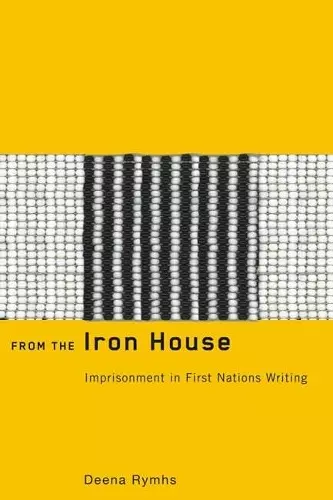From the Iron House
Imprisonment in First Nations Writing
Format:Hardback
Publisher:Wilfrid Laurier University Press
Published:30th Apr '08
Currently unavailable, our supplier has not provided us a restock date

In From the Iron House: Imprisonment in First Nations Writing, Deena Rymhs identifies continuities between the residential school and the prison, offering ways of reading ""the carceral"" - that is, the different ways that incarceration is constituted and articulated in contemporary Aboriginal literature. Addressing the work of writers like Tomson Highway and Basil Johnston along with that of lesser-known authors writing in prison serials and underground publications, this book emphasizes the literary and political strategies these authors use to resist the containment of their institutions.
The first part of the book considers a diverse sample of writing from prison serials, prisoners' anthologies, and individual autobiographies, including Stolen Life by Rudy Wiebe and Yvonne Johnson, to show how these works serve as second hearings for their authors - an opportunity to respond to the law's authority over their personal and public identities while making a plea to a wider audience. The second part looks at residential school narratives and shows how the authors construct identities for themselves in ways that defy the institution's control. The interactions between these two bodies of writing - residential school accounts and prison narratives - invite recognition of the ways that guilt is colonially constructed and how these authors use their writing to distance themselves from that guilt.
Offering new ways of reading Native writing, From the Iron House is a pioneering study of prison literature in Canada and situates its readings within international criticism of prison writing. Contributing to genre studies and theoretical understandings of life writing, and covering a variety of social topics, this work will be relevant to readers interested in indigenous studies, Canadian cultural studies, postcolonial studies, auto/biography studies, law, and public policy.
"[Rymhs's] prose successfully conducts [her] analysis with great economy and clarity within this accomplished book." -- Kit Dobson -- Canadian Literature, 200, Spring 2009, 200909
"This book makes an important contribution to Native North American studies by pairing the examination of key contemporary writings by Native peoples who have been incarcerated in the penal system with stories of those who survived and were fundamentally changed by their experiences at Canadian residential schools. Using the concept of 'carceral writing' as the basis for her wide ranging study, Rymhs makes a compelling case for understanding how, historically, residential schools 'served as the antecedent to the prison' because both institutions are designed to evoke and sustain feelings of guilt.... Throughout Rymhs carefully traces the links and differences between ... texts, creating nuanced and quite precise analyses that are notable for the clarity of her language and the manner in which she is able to discuss a large number of works without losing focus.... [A]n excellent introduction to the topic and convincingly demonstrates the need for much more scholarship in this area of Native writing." -- Jennifer Andrews, University of New Brunswick -- Canadian Journal of Native Studies, Vol. 30, #1, 2010, 201009
"Informed by postcolonial theory, trauma theory, international prison literature, and critical work on resistance writing, Rymhs's is the first book-length study of imprisonment as not only a predominant theme in Aboriginal literature, but also a material reality shaping the form and content of this literature. She thus redresses a conspicuous gap in scholarship on prison writing, Aboriginal literature, and Canadian literature generally....[I]ts scope is impressive." -- Nancy Van Styvendale, University of Saskatchewan -- Great Plains Quarterly, Spring 2010, 201007
- Runner-up for Gabrielle Roy Prize 2008 (Canada)
ISBN: 9781554580217
Dimensions: 229mm x 152mm x 25mm
Weight: unknown
162 pages